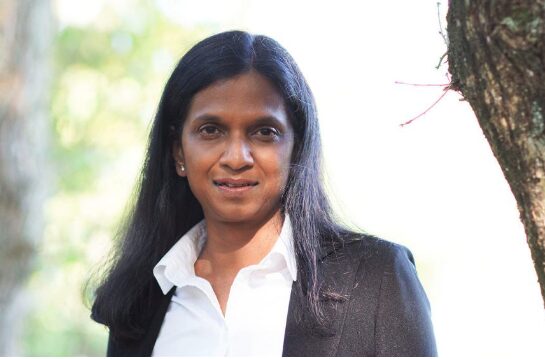Support for ‘vaccine internationalism’ is significantly stronger than for ‘vaccine nationalism’ according to a recent University of Auckland-led survey that gauged public opinion on the Covid-19 vaccine.
A transdisciplinary collaboration between social science and medical researchers at Waipapa Taumata Rau, University of Auckland and the University of Otago, saw a 2022 survey of 1,135 New Zealanders’ views on the global distribution of Covid-19 vaccines and the sharing of vaccine manufacturing knowledge between countries.
The study spotlights the importance of public voice amid the complexities of pandemic responses. Lead author Dr Komathi Kolandai, a research fellow at the Centre of Methods and Policy Application in Social Sciences (COMPASS) and the Public Policy Institute in the University of Auckland’s Faculty of Arts, says results showed support for vaccine internationalism was significantly stronger than for vaccine nationalism.
“Vaccine internationalism, sometimes called vaccine globalism, involves distribution based on need at the international level through cooperation between countries,” said Dr Kolandai.
“By contrast, vaccine nationalism is when governments sign advance purchase agreements with pharmaceutical manufacturers to supply their own populations with vaccines ahead of them becoming available to other, often poor, countries.”
Alongside other wealthy nations, New Zealand was critiqued for vaccine nationalism as these advance purchase agreements limited the global supply of vaccines available to COVAX, a global vaccine-sharing scheme set up by the World Health Organisation (WHO) to achieve equitable distribution.
“The survey also showed the public support openly sharing Covid-19 vaccine manufacturing knowledge and technology, rather than safeguarding vaccine manufacturers’ intellectual property,” says Dr Kolandai.
Collectively, findings from this and previous studies reflect globalist values about vaccine sharing among the public that may be at odds with their governments, she says, and governments would do well to take notice.
“Addressing the vaccine nationalism dilemma in pandemic responses is critical because the world will face decisions on vaccine allocation again. Another zoonotic pandemic is inevitable considering its many human-caused drivers, and that will require the development and equitable distribution of new vaccines.”
Recently, for example, she says monkeypox vaccines were allocated to high-income countries that could afford them rather than historically endemic countries that needed them most, illustrating a recurring pattern of vaccine nationalism.
Public sentiment about global vaccine distribution is a crucial factor for policymakers and public health officials to consider during pandemic responses because it can, in turn, affect public trust and cooperation, the study concluded.
“We believe establishing effective vaccination as a global public good, and as called for by international organisations such as the WHO and the United Nations, will be a good investment in health for the longer term,” says Dr Kolandai.
According to health experts, as well as global mathematical modelling, vaccine internationalism during pandemics can also reduce the risk of new variants and crucially, the global death toll, she says.
“A just and globally equitable sharing of vaccines might well require alterations to policy choices that individual governments make at the local level. We would advise governments to invest in proactive public engagement efforts before and during a pandemic to clarify critical ethical issues and inequities, so people understand what’s at stake.”
Public opinion on global COVID-19 vaccine procurement and distribution policies: A nationally representative survey in Aotearoa New Zealand 2022 by Komathi Kolandai, Barry Milne, Martin von Randow, Chris Bullen, Samantha Marsh and John A. Crump, published by Elsevier, is now available online.



